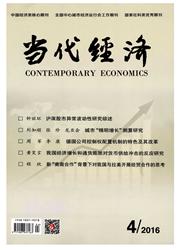

 中文摘要:
中文摘要:
应用多元回归分析的手段,对不同类型员工非工作上网行为的影响因素进行比较研究。研究结果表明,浏览类非工作上网行为影响因素按敏感性从大到小排序是寻求个人满足、相关制度不完善和合理化倾向,邮件类非工作上网行为影响因素是合理化倾向和寻求个人满足,交互类非工作上网行为影响因素是合理化倾向、寻求个人满足和相关制度不完善。该结论为企业进一步管理员工非工作上网行为提供决策支持。
 英文摘要:
英文摘要:
Based on the multi-regression analysis, a comparative study is conducted to explore the influencing factors of different types of cyberloafing. The result shows that influencing factors of browsing-related cyberloafing in descending order include seeking personal satisfaction, the imperfection of relevant rules and rationalization propensity. The affecting factors of non-work-related email cyberloafing are rationalization propensity and seeking personal satisfaction. Rationalization propensity, seeking personal satisfaction and the imperfection of relevant rules affect interactive cyberloafing. These conclusions would provide implications for corporations to manage cyberloafing of employees.
 同期刊论文项目
同期刊论文项目
 同项目期刊论文
同项目期刊论文
 Multichannel Integration Quality, Online Perceived Value and Online Purchase Intention: a Perspectiv
Multichannel Integration Quality, Online Perceived Value and Online Purchase Intention: a Perspectiv 期刊信息
期刊信息
